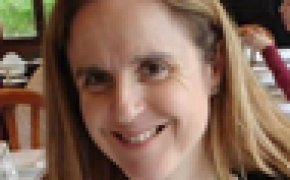Teenagers and people with reduced mobility map their surroundings and make suggestions for improvement.
Friendly Cities 4All aims to promote civic engagement in the field of urban accessibility. Teenagers and people with reduced mobility map their surroundings together (sharing the results in OpenStreetMap) and make suggestions for improvement (writing an accessibility report)
There are some steps, all with process of Action-Reflection:
- WORKSHOP. People with disabilities, educators, volunteers and High School students take part in a workshop on social inclusion and OpenStreetMap.
- FIELD WORK. With mixed groups, teenagers and people with mobility difficulties walk around the city TOGETHER. They locate points of difficult access, alternative routes, using a piece of paper with the map (field papers), photos and developing their sense of direction and coping with the environment.
- Then, they map these points into OpenStreetMap. Using this free software, they edit digital maps based on geolocation, using a traffic light color code for each point. When they upload the data, it is automatically displayed in the app (available FREE for anyone) enabling the generation of “friendly routes”.
- The students submit accessibility reports to public administrations and to their community. With collective return.
- The participants analyze the experience, individually and collectively.
Resources needed
The project was funded by the city council of Portugalete, the Spanish Foundation for Science and Technology, the University of Deusto and the Basque regional government among others. To replicate this initiative, it is necessary to have a coordinator person and volunteers to support the teenagers.
Evidence of success
Students and volunteers are more ENGAGE to "make a difference". Almost 1000 action-researchers, 856 of them were students from 11 high schools, changing their opinion about the relation between urban accessibility and disability.
Stakeholders have acquired evidences for their lobbying actions. Almost 3.000 stores, portals and sidewalks evaluated. 4 km2 has been surveyed.
Researchers have improved the knowledge over sustainability, engagement and accessibility indicators.
Difficulties encountered
This community initiative is still not autonomous and scalable as we had thought, and certain adjustments in the model are still needed.
Fostering the sustainability of the ENGAGEMENT through Action-Research is the strength, but, at the same time it has been our highest limitation.
Potential for learning or transfer
This project has been adopted in other regions in Spain (Ceuta or Zaragoza); and has been invited to share the experience by the Government of Minnesota, the Royal Geographical Society in London or several universities.
In addition, a PhD thesis was developed as part of this work and approaches the potential of this good practice for transfer: García-Pérez, A. (2019). PhD Dissertation. Bilbao: University of Deusto]
Some advices from our experiences in this project: 1) create a network of interdisciplinarity on different fields of research, on different experts by experience (from the community) and on academic subjects (from schools); 2) build democratic leadership and trust relationships, with a spiral-bottom up approach; 3) combine citizen science with the pedagogy of Service Learning, in a waterfall model with social-educational-technological innovation, understanding each person involved as "Full Action Researcher".
Tags: Accessibility, Empowerment, Innovation, Social








